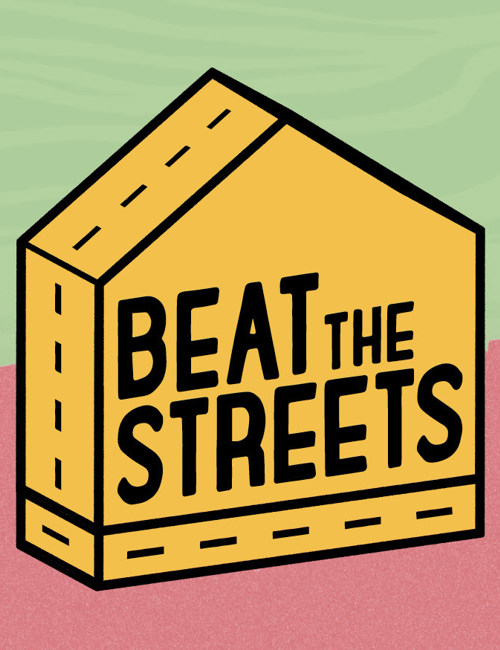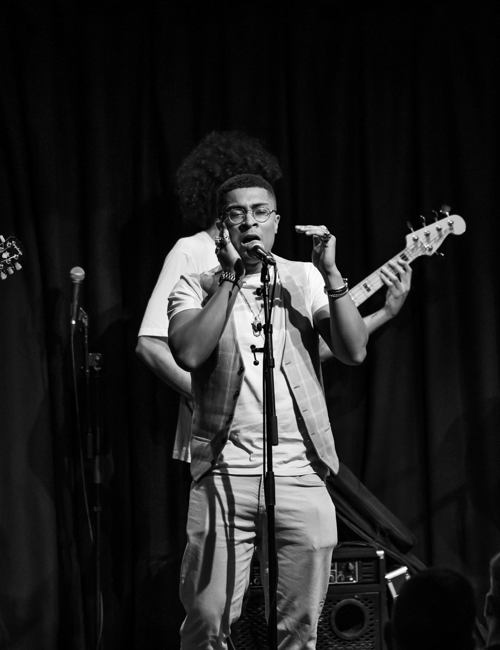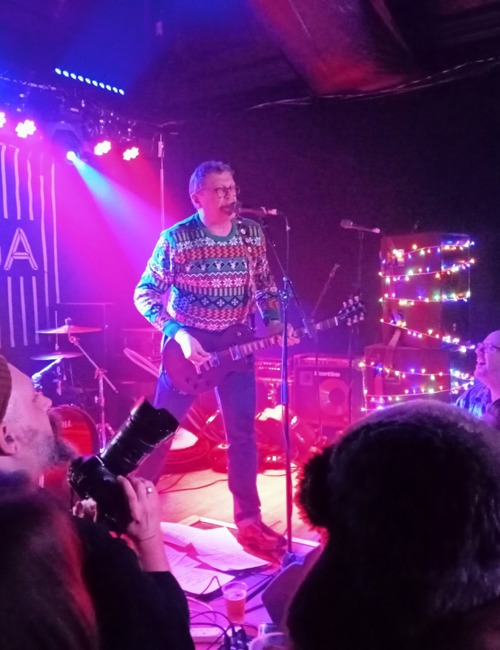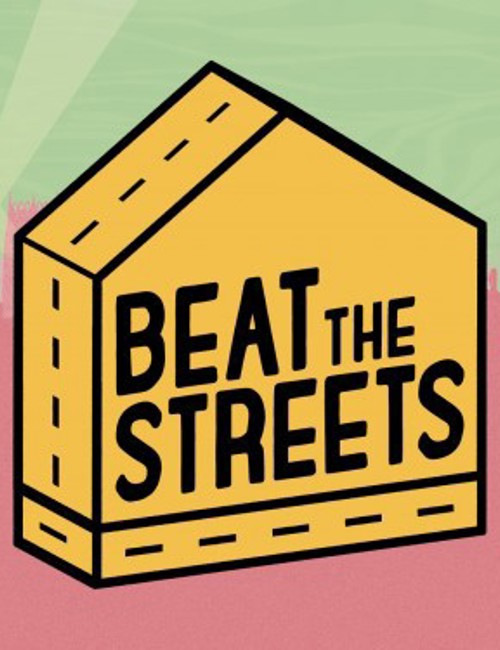
illustration: Kirsty Black
Growing up in Dagenham, East London, Debris developed an all-encompassing love for grime music. “It was the most interesting thing being articulated that I had ever heard,” she says. “It's where I learned to tell stories, and where I learned that education’s definition of success is complete bullshit… because all these guys that were not necessarily academically successful, were brilliant.” Attending secondary school between 2002 and 2008, around the time the genre was being invented, she would listen to pirate radio stations and memorise bars by heart. Especially those of Dizzee Rascal.
“Deja Radio would play a lot of his content, then suddenly you got the [Boy in da Corner] album. Crystal clear. Hearing all these narratives of your life comprised in one space – it was a really important moment,” says Deborah. “Grime really sounds of the rage, the atmosphere, the conflict and joy of where I grew up.” At the age of sixteen, she discovered poetry at the Roundhouse, Camden, so began attending slams and spoken word events. “Someone would drop a poem and everyone would go nuts – screaming, rolling on the floor. That’s how I communicate – very loud.”
She eventually became enmeshed in academia, studying for a BA at the University of Nottingham, and then onto Loughborough for an MA in Creative Writing. After completing this, she started up Mouthy Poets – an Arts Council-funded poetry collective based at Nottingham Playhouse, which focuses on education, individual stories, emotional wellbeing and, most importantly, awesome poetry. As well as this, she’s constantly grafting as a poet, educator, artist and director.
“After learning to articulate myself and building my career,” says Debris. “I realised that those who grew up around me had become very distant from the life I was living, weirdly, when I did some of my more grime-based poetry in Englewood, Chicago, and I saw how much it connected with them.”
With an itch to further combine the worlds of grime and poetry, cogs started moving for Poet in da Corner. “It’ll firstly be an EP, and then an album, which takes every track off Boy in da Corner, and academically analyses it in terms of content, meter, rhyme scheme and lyrical techniques. In academia, that’s usually how you demonstrate knowledge and understanding of a craft – creating a different story with the same structure,” says Debris. “I’m then creating whole new tracks with a producer and an emcee that has a resonance to the original track. A whole new piece of content under the same title. Eventually, the fifteen-track album will work as a theatrical show.”
This album clings to the bones of who Debris is, but she speaks of a more universal narrative to the work she’s doing. “Although poetry can often connect with quite vulnerable audiences, there’s a sense of rage and irreverence in certain communities that I think it’s become very distant from. My mentor for the project Charlie Dark said something that I really agree with – that grime essentially inspired a whole generation of otherwise disenfranchised, (mainly) men, to commit their lives to words.
“That hasn’t really been recognised by the literary community, the academic community, the art community. Not a lot of investment has been made in those people. And it’s a little bit scary when you see how hard it is to build a career in the industry. As someone who has set up a literary organisation that enables people to build careers in a way that isn’t just about selling records or getting an agent, I have a sense of responsibility to create pathways for those artists. And also to academically recognise their quality of the work.”
Tied into the album by its very roots is Dirtee Verse – the larger artistic movement currently being developed by Debris and more than twenty artists; bringing poets and emcees together to create a dialogue “about what differentiates grime lyricism from rap, from poetry, from spoken word; about where we can learn from each other and work together,” says Debris. The five-year project will establish grime within the context of academia, validating it as a craft and thereby opening up career pathways for emcees and poets. This will include developing an anthology, based on The BreakBeat Poets anthology, which tracks various grime influences over time by logging poets and emcees according to their year of birth, archiving the history of what grime is.
Friday 27 May saw Dirtee Verse manifest itself in an event at the Roundhouse – grime DJed live with poetry, clashes between poets and emcees, poetry about grime, as well as artists who picked tracks to pull apart and recreate themselves. Plus, back in March, there was a panel discussion at the ICA – Poetics of Grime – involving Kayo Chingonyi, Charlie Dark, Eklipse, and Debris herself. “We’re all from East [London]. It was great to share the stage with people I love and respect. It was a more academic discussion – the audience was seated so it was quite sedate. A lot of people commented on the audience like ‘These clearly aren’t people who grew up listening to grime, taking in information rather than participating in it.’ But it was beautiful, I really enjoyed it.”
But what kind of challenges has Debris faced in addressing such seemingly different audiences – the academic community, and the grime community? “I’ve been focusing more on the grime community because academia is much slower than the music industry. The academic following is naturally happening, so I haven't been massively confronted by that. Most of the conflict I'm coming to terms with is from the grime audiences because, like for me, for a lot of people it’s their life. That sort of music is our life.
“It sounds like where we grew up, we have a very personal definition of what it is, and therefore have a certain sense of ownership over it. When something comes along and jars with your perception of that, it can create quite a lot of controversy. That can be difficult, but also exciting, because I want to challenge audiences. I want people to ask ‘What is this? It it a poem? Is it grime? Is she an emcee? Is she a poet?’ Cos that’s the point; to be asking questions and exploring those potential answers.”
Throughout the crafting of Poet in da Corner, Debris has been unearthing truths about the form: “Sometimes it does resonate more with page poetry than spoken word because it has a strict barrage of meter, rhyme and repetition. Repetition is so inherent with grime, it beats you around the head with it. That is far more intrinsic to form.”
Debris has been making several different versions of each Boy in da Corner track – from performance poems, to condensed-down page poems – and after three months, she’s nailed the techniques within the grime form. “I’ve never had the confidence to teach meter because I found it so hard to understand. But I think I get it now. It intensely understands the music of language and the impact of that. Meter lives in your body, it lives in your mouth, it doesn’t live in your head.”
With the EP shaping up to be released on Saturday 23 July, the thirteenth anniversary of Boy in da Corner, I ask Deborah what message she wants to put across through this work. “Grime is a valid art form and form of intelligence. The other day my mum was like, ‘Isn’t this just people being angry?’ Part of the message is that rage is a valid and essential emotion – something like grime gives it a really important outlet. It is an art form, skill and intelligence. It’s insanely all those things. That’s my key message. Reviving the rage and irreverence of spoken word, and how it can live with music.”
Debris Stevenson’s Poet in da Corner preview, Neville Studio, Nottingham Playhouse, Saturday 11 June, 7.45pm, £8/£10. Get tickets here
We have a favour to ask
LeftLion is Nottingham’s meeting point for information about what’s going on in our city, from the established organisations to the grassroots. We want to keep what we do free to all to access, but increasingly we are relying on revenue from our readers to continue. Can you spare a few quid each month to support us?




